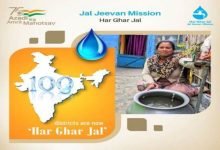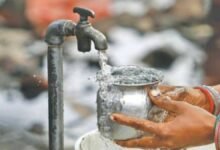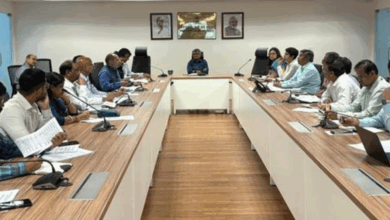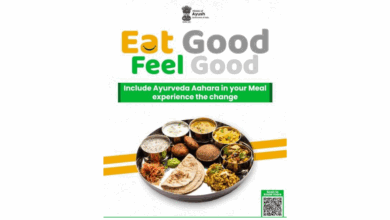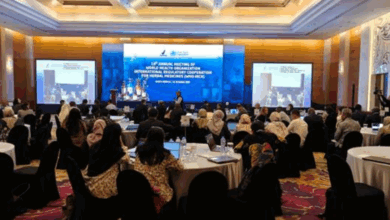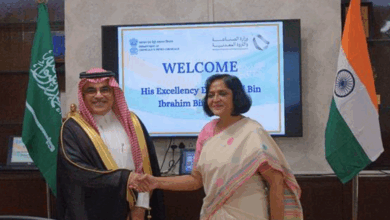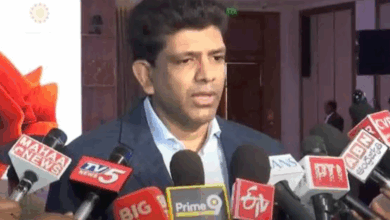Union Minister of Jal Shakti To Chair Conference Of PHED Ministers Of 8 North-Eastern States on Jal Jeevan Mission
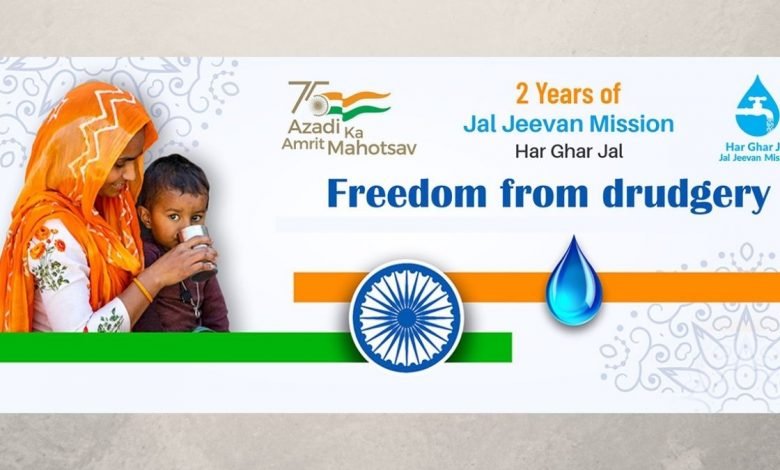
Conference To Holistically Deliberate on All Aspects Of Expeditious Implementation Of Jal Jeevan Mission in the States
The Union Minister of Jal Shakti, Shri Gajendra Singh Shekhawat will be chairing a one-day Conference of Public Health Engineering Department (PHED) Ministers of North-Eastern States on Jal Jeevan Mission (JJM) on 16th September 2021. The conference, scheduled to be held at Assam Administrative Staff College, Guwahati is to be attended by Ministers-in-charge of the Public Health Engineering Department (PHED) from all the eight North-Eastern States along with senior officers from each State.
The conference is organized to discuss planning, implementation and progress made so far as well as the way forward so that all remaining households in the North-Eastern States get tap water connections at the earliest. The conference, following all CoVid-19 protocols, will also be live-streamed so that all stakeholders, viz. Chief/ Executive/ Assistant/ Junior Engineers of PHED in these States can benefit from the deliberations.
Jal Jeevan Mission is a flagship program of the Union Government being implemented by the Department of Drinking Water & Sanitation (DDWS), Ministry of Jal Shakti in partnership with States, to make provision of the tap water connection to every rural household across the country by 2024. The fund sharing pattern between Centre and State is 90:10 for the NE States.
With the Union Government’s undivided focus on the development of the North-Eastern region of the country and to accelerate its all-round development, during the financial year 2021-22, Rs. 9,262 Crore has been allocated as a Central grant for the NE States under Jal Jeevan Mission. The enhanced allocation as well as the release of funds at this challenging time to provide tap water connections to rural homes in the NE States is expected to boost the economy of the region.
The focus of the conference will be on the important issues pertaining to the implementation of the program, viz. strategy & planning, progress made so far, ways to enhance the pace of implementation to achieve the goal in a time-bound manner, etc. The Union Minister of Jal Shakti will interact with Ministers of PHED on the implementation of JJM and the way forward so that all remaining households in remote north-eastern villages receive tap water connections at the earliest.
At the time of the announcement of the mission, out of a total of 90.14 lakh rural households in the NE States, only 2.83 lakh (3.13%) had tap water connections, which has now increased to about 22 lakh households (24.45%). About 20 lakh households have been given tap water connections in the last 24 months despite the CoVid-19 pandemic and disruptions/ lockdowns. Meghalaya, Manipur, and Sikkim aim to achieve the status of ‘Har Ghar Jal by 2022 while Arunachal Pradesh, Mizoram, Nagaland, and Tripura aim to provide tap water in every household by 2023 followed by Assam in 2024.
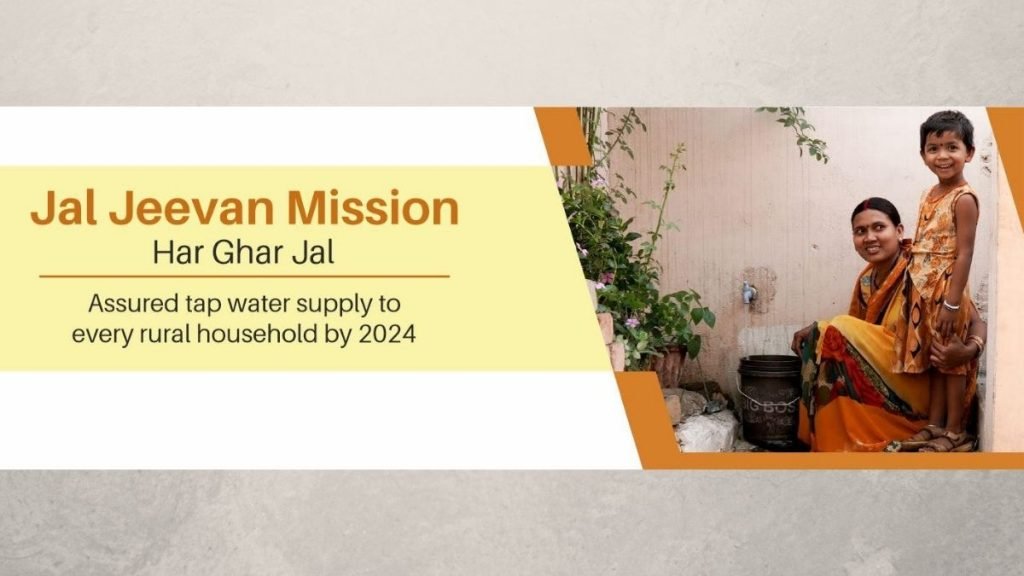
To ensure piped water supply in Anganwadi centers, ashram shalas, and schools, a campaign was launched on 2nd October 2020, for making provision of safe tap water supply for drinking and cooking of mid-day meals along with piped water supply for hand washing and use in toilets. In the NE States, out of a total of 72 thousand schools, presently in 40 thousand (56%) schools, provision of tap water supply. Similarly, out of 70 thousand AWCs, 27,474 (39%) AWCs provision of tap water supply have been made. In Sikkim, provision for tap water supply in all its schools and AWCs have been made.
The soul of the program is ‘community participation’ commencing from the planning of the water supply scheme, its implementation, and to regular operation and maintenance to achieve assured water supply. Therefore, under JJM, a lot of emphases is given to support activities like empowering Village Water & Sanitation Committees (VWSCs)/ Pani Samitis’, preparation and approval of Village Action Plans (VAPs) which will have the components of drinking water source strengthening/ augmentation, water supply infrastructure, greywater treatment & reuse, and operation & maintenance of in-village water supply systems.
The States are organizing intensive training and skilling programs, especially for 5 persons mostly women in every village on water quality surveillance and local persons as masons, plumbers, electricians, motor mechanics, fitters, pump operators, etc.
With Government’s focus on water supply and improved sanitation, the 15th Finance Commission allocated Rs. 26,940 Crore tied grants to RLBs/ PRIs in 2021-22 for the supply of drinking water, rainwater harvesting and water recycling; and sanitation and maintenance of ODF status. There is an assured fund of Rs. 1.42 lakh Crore for the 5 years from 2021-22 to 2025-26. This will supplement the ongoing efforts under JJM. All-out efforts to be made for judicious use of this grant by rural local bodies by focusing on various activities viz. rainwater harvesting, strengthening of drinking water sources, improving water supply, greywater management, and regular operation & maintenance.
A sensor-based IoT system is being installed to measure the quantity, quality, pressure, and regularity of water supply in the village. The Jal Jeevan Mission Dashboard provides information up to the village level. The focus under mission is assured water supply to ensure that remaining rural households as well as every school, AWCs, PHCs, CHCs, Community Centers, etc. are provided with tap water connection through retrofitting/ augmentation so that ‘no one is left out. In these difficult and challenging areas, a gravity-based water supply system is the most preferred option as it is cost-effective, easy to operate and maintain.
To improve the quality of life and enhance the ease of living of people in rural areas, Prime Minister Shri Narendra Modi announced JJM in his Independence Day speech on 15th Aug. 2019. The provision of household tap connections in rural areas will help in removing the ‘drudgery’ of women and girls as fetching water is their responsibility. Since the objective of the mission is universal coverage, every family in the habitation/ village is to get a tap water connection and ‘no one is left behind. This will help in bridging the gap in urban and rural areas. Taking forward Prime Minister Shri Narendra Modi’s vision of ‘Sabka Sath, Sabka Vikas, Sabka Vishwas, Sabka Prayas’, Jal Jeevan Mission is marching ahead to realize the vision of reaching every home with tap water supply, thereby ending the drudgery faced by women and girls.

